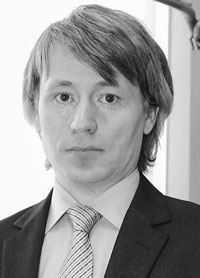Popular physical education and sports in the volga federal district: progress analysis
Keywords:
cluster analysis, development of physical education, mass sport, sports practices.Abstract
Objective of the study was to analyze progress of popular physical education and sports in the Volga Federal District using cluster analysis.
Methods and structure of the study. We applied for the purposes of the study a group of statistical data processing methods commonly referred to as the "learning without teacher", with a special application of a non-hierarchical clustering method with separation around k-medoids. Medoid means herein a centroid whose coordinates are shifted to the nearest input data array. We mined data for the study from the 2017-2020 reports of the Ministry of Sports of the Russian Federation.
Results and conclusion. A comprehensive statistical data processing with cluster analysis made it possible to find the constituents of the Volga Federal District in need of special support in the popular physical education and sports encouragement initiatives. It should be mentioned that the Udmurt Republic has been ranked among the constituents still lagging behind in the physical education and sports committed population growth statistics for the last four years under study.
References
Zolina Z.M., Izmerov N.F. [ed.] Labour physiology guide. Moscow: Meditsina publ., 1983. 528 p.
Shitkov V.K., Mastisky S.Ye. Classification, Regression, and Other Data Mining Algorithms. (2017). R. 351 p. E-book https://github.com/ranalytics/data-mining.
Arem H., Moore S.C., Patel A., Hartge P., Berrington de Gonzalez A., Visvanathan K., Campbell P.T. et al. Leisure Time Physical Activity and Mortality: A Detailed Pooled Analysis of the Dose-Response Relationship. JAMA Internal Medicine. 2015. 175 (6). pp. 959-967. doi:10.1001/jamainternmed.2015.0533.
Hadian H., Razavi S.M.H., Boroumand M.R., Amirnejad S. Strategies for Developing Economy of Iran’s Sports Industry. Annals of Applied Sport Science. 2020. 8 (S2). doi.org/10.29252/aassjournal.843.
Kaufman L., Rousseeuw P.J. Partitioning Around Medoids (Program PAM). In Finding Groups in Data (eds L. Kaufman and P.J. Rousseeuw). New Jersey: John Wiley & Sons, 1990. pp.68-125. doi.org/10.1002/9780470316801.ch 2.
Komskienė D., Garastaitė L., Bradūnas A. The Influence of Sports Sponsorship on the Economy of National Sports Industry. Laisvalaikio Tyrimai. 2018. 2(6). doi.org/10.33607/elt.v2i6.223.
Manuel Alonso Dos Santos, Ferran Calabuig Moreno (2020) Management, marketing and economy in sports organizations. Sport in Society. 2020. 23 (2). pp. 175-179. doi: 10.1080/17430437.2020.1705524.

Additional Files
Published
Versions
- 03-01-2022 (3)
- 03-01-2022 (2)
- 01-11-2021 (1)

